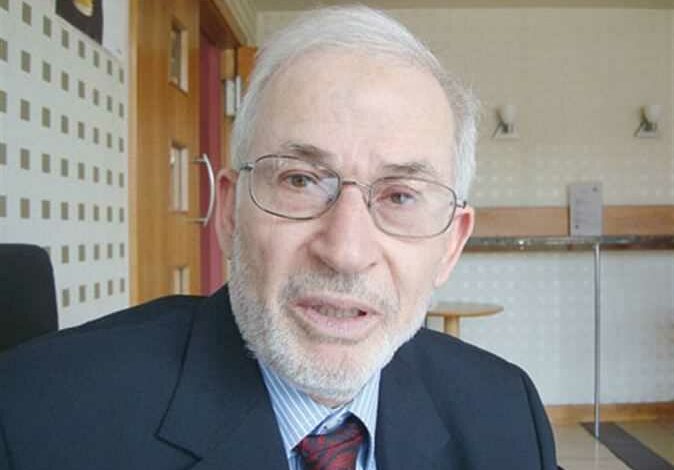
A leader of the international Muslim Brotherhood, Ibrahim Mounir passed away at the age of 87.
He began as contact with the security apparatus to its leader in the London and Istanbul fronts, and took charge of all matters of the group’s abroad.
Mounir did not hide his relationship with security services from the 1960s and 70s, as he admitted in television interviews at the time that he was a link between the organization and the investigation service.
He explained he was used by a senior officer in the 60s to write reports, answer questions, explain documents, statements and organizational terms, and explain the book “Milestones on the Road” by Sayyed Qotb.
Mounir revealed that he met Major General Hassan Abu Basha, one of the most important officers of the Interior Ministry at that time, who took the position of Interior Minister in the 80s.
This relationship did not prevent Mounir from being arrested, as he was arrested in 1965 and tried in the case of the Sayyed Qotb organization.
After traveling to London, Mounir worked as a director at the Islamic Charitable Society, for humanitarian relief, the Solidarity Fund, and the Renaissance Foundation.
He also coordinated the activities of the Egyptian Muslim Brotherhood and the International Brotherhood Organization, from their office in Cricklewood Broadway in London, and supervised the “Resalat al-Ikhwan” (Brotherhood Message) published by the terrorist group weekly.
In 2009, Mounir was sentenced in absentia to five years in prison, before ousted Brotherhood President Mohamed Morsi issued a presidential decree pardoning Mounir in August 2012, about a month after he assumed the presidency.
Mounir was the main arm for managing various issues abroad by virtue of his control over the International Organization Office, his membership in the Special Organization, and being close to the generation and current of Mostafa Mashhour, the true founder of the International Organization.
Since the end of the era of the group’s third guide, Omar al-Telmisani, Mounir became a key member of the Guidance Bureau from abroad.
Following the removal of Morsi and the arrest of Mohamed Badie, the Brotherhood’s Supreme Guide, his deputy, Mahmoud Ezzat, assumed the position of acting guide, but with Ezzat’s fall in the grip of Egyptian security in 2020, the position went to Mounir, who was leading what was known as the “London Front.”
The choice of Mounir as acting guide was not accepted by all circles of the group, especially among the youth, who rejected him because of accusations of financial and moral corruption.
A divided brotherhood
Immediately after Mounir assumed the leadership of the Brotherhood, the group issued a statement calling on all its administrative offices to contain the group’s youth who rejected Mounir’s appointment, and demanded that they adhere to absolute commitment and due obedience, and not split the ranks.
The matter did not last long as in October 2021, a group of now arrested members withdrew confidence from him and relieved him of his duties as acting guide, claiming that a decision had been issued by the group’s Egyptian General Shura Council.
This was followed by a demand from Mahmoud Hussein, a member of the Guidance Bureau and leader of the anti-Mounir front known as the “Istanbul Front,” to dismiss him, and assign a committee to carry out the duties of the Supreme Guide.
In July, the Istanbul Front announced the final dismissal of Mounir from the group and 13 leaders, a move showcasing real collapse within the organization.
Mounir tried to win the favor of the Egyptian authorities in his last media appearance, speaking to Reuters.
He said that “The group will not engage in a new struggle for power through the ballot boxes,” which some considered an initiative to reconcile with the Egyptian regime, which is dealing painful blows to the terrorist organization.
Before his death, Mounir was being tried in absentia, along with former Brotherhood leader Abdel Moneim Aboul Fotouh and 24 other defendants accused of spreading false news, and he was sentenced to lifetime imprisonment.
In February, the Egyptian judiciary upheld the decision to include Mounir on the list of terrorist persons and entities.




